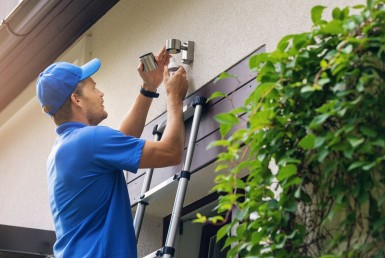Energy Saving Tips To Keep Your Home Warm This Winter

6 Energy-Saving Tips to Keep Your Home Warm and Wallet Happy This Winter
As the winter chill settles in, many of us find ourselves cranking up the heat and reaching for extra blankets to stay warm. However, keeping your home cosy doesn’t have to come at the expense of high energy bills. With a few simple adjustments, you can save both energy and money while staying comfortable throughout the colder months.
Here are six energy-saving tips to help you achieve just that:
- Utilise Your Ceiling Fan: Did you know that your ceiling fan can help distribute heat more efficiently? Switch your ceiling fan to its low setting and set it to rotate clockwise. This will push warm air that rises to the ceiling back down towards you, keeping you warmer without relying solely on your heating system.
- Optimise Your Air Conditioning Settings: If you use air conditioning to regulate the temperature in your home, adjusting the settings can lead to significant energy savings. Aim to set your aircon between 18 to 21 degrees during the winter months. Even a small adjustment of one degree can result in approximately 10% less energy usage, helping to reduce your energy bills without sacrificing comfort.
- Limit Shower Time: While a long, hot shower may be tempting during the winter, it can also contribute to higher energy bills. By shortening your shower time, you can save water and potentially save up to 20% on your energy bill.
- Wash Clothes in Cold Water: When doing laundry, opt to wash your clothes in cold water whenever possible so you can reduce energy consumption while still effectively cleaning your clothes.
- Air Dry Your Clothes: Instead of using a clothes dryer, consider air-drying your laundry on a rack in a heated room. This eliminates the need for energy-intensive drying cycles and allows you to take advantage of existing heat sources in your home. Not only will you save energy, but you’ll also extend the life of your clothes by avoiding the potentially damaging effects of high heat.
- Power Down Appliances: Many appliances continue to consume energy even when they’re not in use. To prevent unnecessary energy waste, make a habit of switching off all appliances at the wall when they’re not in use. This simple step can help reduce standby power consumption and lower your overall energy usage.
- By implementing these energy-saving tips into your daily routine, you can help reduce your energy bills. Making small changes now can lead to significant savings over time and contribute to a more sustainable future for both your household and the environment.




